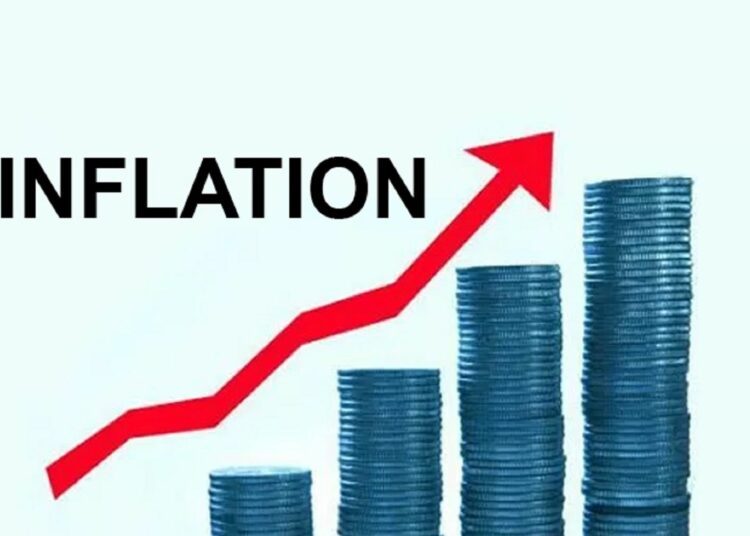Analysts have predicted that Nigeria’s inflation rate will increase further above 32 per cent for the month of March.
Lagos-based Financial Derivative Company (FDC), in a report, projected that inflation figure is expected to peak at 32.4 percent in March 2024, hitting a multi-decade high.
“Inflation in March is expected to surge to 32 per cent underpinned by food supply chain disruption and lingering impact of fuel subsidy reduction,” FDC said.
It added that consumer price is further fueled by what it termed as “greedification”, “corporate greed and the naked exploitation of consumers by conscienceless marketers”.
In a presentation at the Lagos Business School (LBS), the chief executive officer of FDC, Bismarck Rewane, noted that while inflation has begun to decelerate in other countries like South Africa, United Kingdom and India, Africa’s largest economy prices may increase by 0.7 percentage points from what it was in February.
Consumer Price Index which accelerated to 31.7 percent in February, according to the National Bureau of Statistics, may continue its streak until a descent is seen later in the year.
“Inflation is set to peak in May/June and begin to decline after the wage review,” FDC noted.
The Lagos-based company noted that while the central bank has embarked on aggressive monetary policy targeted at taming the stubbornly high inflation, it might not be sufficient enough to bring the numbers down.
It said that countries like Kenya, Turkey and Egypt did more than deploying monetary tools, adding that they sourced for new money in terms of Eurobonds and bailout interventions from World Bank or International Monetary Fund.
FDC further stated that structural reforms and wage review were measures adopted by these countries in controlling its inflation figures.
On his part, the deputy governor of the Economic Policy Directorate of the Central Bank of Nigeria (CBN), Muhammad Sani Abdullahi, projects the nation’s CPI to soar to 32.63 per cent.
For Abdullahi, three major drivers that have kept inflation jumping are high energy costs, the impact of exchange rate fluctuations and persistent insecurity concerns in the country.
He said: “Headline inflation is expected to rise to 32.63 per cent in March 2024, due to: high Energy Prices: Lingering impact of fuel subsidy removal, resulting in an increase in the cost of household utilities, transportation and production costs.
“Exchange Rate Passthrough: Depreciation of the naira resulting from the market-determined exchange rate policy, is likely to have a passthrough effect on domestic prices.
“Insecurity: Impact of insecurity on food production, the winding down of the harvest season, and high cost of farm input could negatively impact food prices.”
Meanwhile, the Olayemi Cardoso-led CBN has been ramping up efforts to bring the numbers down through a tighter monetary condition.
Notably, the CBN increased the country’s lending rate by a combined 600 basis points at 24.75 percent between its monetary policy committee meeting in February and March.
Cardoso’s leadership has equally put the nation’s currency, Naira, on check now moderating around N1,200 per US dollar, a major rebound for a currency that was heading to N2,000/$ in less than two months.
“Our analysis indicates that inflation is likely to reach a peak in the Q2 before gradually receding, all things being equal,” analysts at Coronation, a leading Africa financial services company, said.





